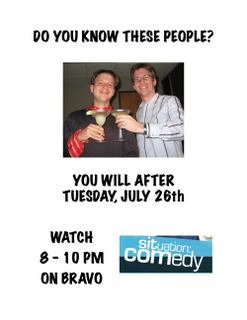Considering that I make my living in the movie business, I see a shamefully small number of films in the theaters each year. I do see some, and I also watch plenty on cable and DVD. I just don't get to the theater that frequently.
Chalk it up to a combination of lack of money and an erratically busy schedule.
Regardless, I did see
Batman Begins last night, finally. And I'll agree with the buzz floating around that this is one of the best superhero movies ever made, and certainly the best Batman film. I'd like to drop a few random comments on it, and also address the script itself, a bit. And hopefully this will become something of a steady thing for me, when I see a movie worth discussing in this forum.
To be honest, I was not particularly familiar with the work of
David S. Goyer, who receives story credit, and co-screenplay credit along with director
Christopher Nolan. But he's clearly made quite a name for himself in the comics-to-film genre, with his credits including the
Blade films, one of
The Crow sequels, and some upcoming superhero flicks, among others. This film definitely worked as "hitting the reset button" on the Batman movies, as I read the quote in an interview. But onto a few specifics (and with their randomness, this is not a traditional "review").
MINOR SPOILER WARNING!First off, I loved what they did with the Scarecrow character. I'm no Batman comics aficionado, but in the various incarnations I've seen, this character never truly lived up to it's potential. But here, for the first time I've seen, he was a truly scary villain, and one that actually made sense. By connecting the fear aspect to a psychotropic drug, it explained how a stupid masked figure could actually be the source of such horrific horror. And Nolan deserves credit for the way in which this was portrayed on screen. The special effects for these scenes were among the more visually pleasing, and deftly handled, of any in the film. They didn't have to hit us over the head; a little pyrotechnics went a long way.
Furthermore, the Scarecrow was an excellent choice for the first film in this new series, thematically speaking. Goyer's script (I'm going to be giving him most of the credit on the screenplay side, though I don't know if this is accurate or not) focuses thematically on facing one's fears, and does what most good scripts will do with a theme. It presents various angles on the subject, exploring them through different characters or subplots. Personal fears can swallow us. We can try to suppress them and/or overcompensate for them. We can also confront them and do battle with them. In so doing, we might simply destroy them, or might actually find ways to internalize them and turn them to our advantage. Each of these points are made and explored to a certain degree in this film, giving it a greater sophistication than some of the earlier Batman films. (And don't get me wrong, I loved Burton's take. I just feel this is a better take.)
Goyer and Nolan are also to be commended for the film's pacing and structure. They resisted the easy urge to make this into a slam-bam action film, with non-stop set pieces. Instead, the film seems more influenced by the Asian action films that have recently grown in popularity Stateside. Movies like
Hero,
Crouching Tiger, Hidden Dragon, and
House of Flying Daggers. The film's pacing and structure helped create a more thoughtful and incisive movie.
The one aspect of the script that most bothered me was the dialogue. Too frequently it veered into the expository and spot-on, "let me tell you how I feel inside" variety. For example, I liked the fact that it was young Bruce's fear of bats that forces the family out of the theater, only to be gunned down by a desperate thug. This adds a lot more resonance than there was in the earlier Batman film, in which it was more a simple random act, as I recall. (I'm told the current version is truer to the comic book.) When I saw this, I said to myself, "Ah. Nice touch, to give Bruce more of a reason to blame himself and his fears." Then, a few scenes later, just after the funeral, we see young Bruce turn to Alfred and say something along the lines of, "It's all my fault. I killed them."
Come on! Trust your audience at least a
little. We're not idiots. We can figure this out without you spelling it out for us. I felt the same way in much of the stuff regarding Rachel and Falcone. (And by the way, if his name is Carmine Falcone, shouldn't he be played by an Italian actor, preferably and Italian American, rather than some Brit? But I digress. ;-) As Rachel begins to explain Falcone's grip on Gotham, and then Falcone takes it to the next level, much of it could have been distilled into a single action or two, or even just a brief line of dialogue. At least when Liam Neeson's character rambles on about what the League of Shadows has done, it is with style and some subtlety. Plus, the slight twist regarding his character adds some subtext to it, in retrospect. But I simply felt too much of the dialogue was on the weaker end of things.
That being said, I still think the script was pretty solid overall, and the film itself was excellent in terms of superhero film in general, and Batman in particular. Well worth the watch for any of you out there who
still haven't seen it.
Tags: Batman+Begins,
David+Goyer,
Christopher+Nolan,
screenwriting




